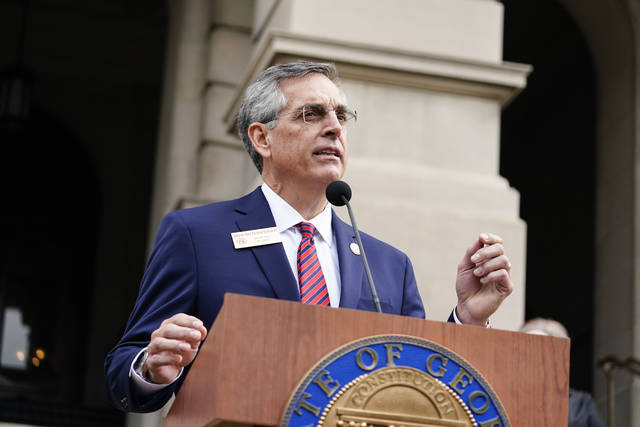Pennsylvania is an epicenter of the 2020 general election. Just 82,000 votes separate former Vice President Joe Biden from President Trump, but in the world we live in, whichever candidate ultimately wins, half the country — and half of Pennsylvania — may distrust the results.
I represent Indiana and Jefferson counties in central Pennsylvania, and my constituents are not the urbanites in and around Philadelphia. While the 2020 election confirmation is ongoing, the 2016 match-up between Donald Trump and Hillary Clinton shows deep divisions across Pennsylvania. There are geographically massive areas where Trump won by 30, 40, even 50 points, and there are densely populated urban centers where Clinton won by equally large margins. There are roughly the same number of people in each camp, deciding elections with worryingly small margins.
While media and political leaders have come to expect these vote patterns, in the polarization of 2020, they have seeded deep distrust between Pennsylvanians. Partially to blame is Americans’ misunderstanding of the political process, and if the goal is to move forward as a nation (even as a state), it’s essential that we develop a greater appreciation for the constitutional election process and how it protects your vote.
When Americans vote — whether early, by mail, or on Election Day — they are taking the first step in this age-old process. The coronavirus pandemic required an overhaul of voting procedure, but some of the most instrumental changes weren’t offered or even approved by us in the legislature.
What has deservedly gotten the most attention is the complete rejection of state law requiring mailed ballots to be received by Election Day. Under pressure from Secretary of State Kathy Boockvar, the Pennsylvania Supreme Court agreed that mail-in ballots received up to three days after the election would be counted — even ballots lacking a postmark. That judicial action was a rewriting of law, an authority the constitution only permits to the legislature, and went far beyond an interpretation of law (the realm of the courts).
This decision alone caused much of the distrust around Pennsylvania’s election results: If ballots are counted three days after the election, without postmarked proof that they were mailed by Nov. 3, who’s to say those ballots weren’t sent after preliminary results showed the candidates within spitting distance?
Not coincidentally, then, the steepest erosion of trust in Pennsylvania’s election results was a direct result of an egregious assault on our electoral process, which compels state legislators to determine how elections are run, not bureaucrats in the board of elections or judges legislating from the bench. With the process eroded, are we supposed to be surprised that voters are flinging accusations of election irregularities and misconduct, when it is state officials who are guilty of eleventh-hour changes to Pennsylvania’s long-standing election process?
This is why the next steps in the process — first confirmation, then certification — are particularly important. Recounts are a normal and necessary part of confirming the results: In close races, where human or technological errors might have made a difference, it’s essential for state officials to ensure accurate results.
Recounts are not new, and they should not be treated as unprecedented: Hillary Clinton participated in a recount in Wisconsin when she lost by 22,000 votes; this election, there’s a 21,000-vote differential, and the Trump campaign is receiving a recount in two counties. Georgia’s minuscule margin of 14,000 votes also then warrants the hand recount that Secretary of State Brad Raffensperger has undertaken.
In Pennsylvania, the State Government Committees in the state House and Senate are working together to examine the irregularities reported to us that appear to have the most credibility to determine what, if anything, went wrong — and what can be done to fix the process. The hearings, to be conducted between now and the end of the legislative session, will be in full view of the public.
Only once such investigations and recounts are completed should state legislators feel confident in certifying the results. Taking a second look to confirm the results is not “un-American,” whatever partisans might say. It’s a normal and necessary part of the election process that Americans have trusted for 230 years. It’s time to let that process unfold, carefully and intentionally.
Whomever state legislators certify in December should support that careful, patient confirmation process, since Americans’ trust in their leaders’ legitimacy depends on it.
Sen.-elect Cris Dush currently serves as representative for Pennsylvania’s 66th District. He is the incoming state senator for the 25th District.








